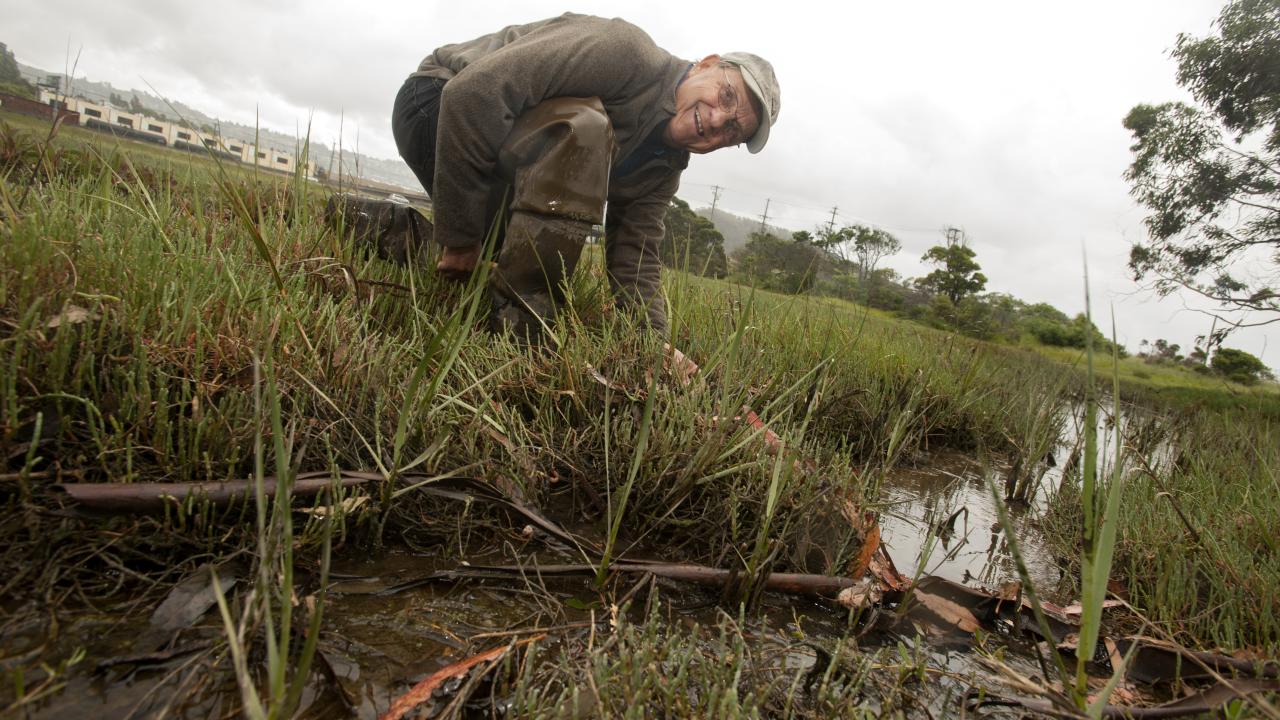A University of California, Davis, professor whose research is helping eliminate an invasive plant from San Francisco Bay is one of 11 award recipients to be honored for excellence in research, teaching and public service on campus on Monday, May 2.
About the Awards Event
- Reception begins at 5:30 p.m. May 2 in Buehler Alumni Center
- Features lecture by award winner Donald Strong
- To attend, please register
Donald Strong of the Department of Evolution and Ecology and the Bodega Marine Laboratory will receive the Faculty Research Lecture Award and speak on ecological misadventures of Atlantic cordgrass, or Spartina.
The Davis Division of the Academic Senate will present eight awards, and the Academic Federation will make three awards at the reception.
The awards program, including Strong’s lecture, will begin at 5:30 p.m. in the AGR Room at the Buehler Alumni Center. People planning to attend the event are asked to register here.
Faculty Research Lecture Award
Strong is widely regarded for his work on biodiversity, competition and food webs, with a particular emphasis on interactions between plants and insects that feed on them. Professor Pamela Lein, who chaired the Senate committee that made the selection, said, “Over three decades, he has produced original and innovative work that has changed the way researchers think about the field.”
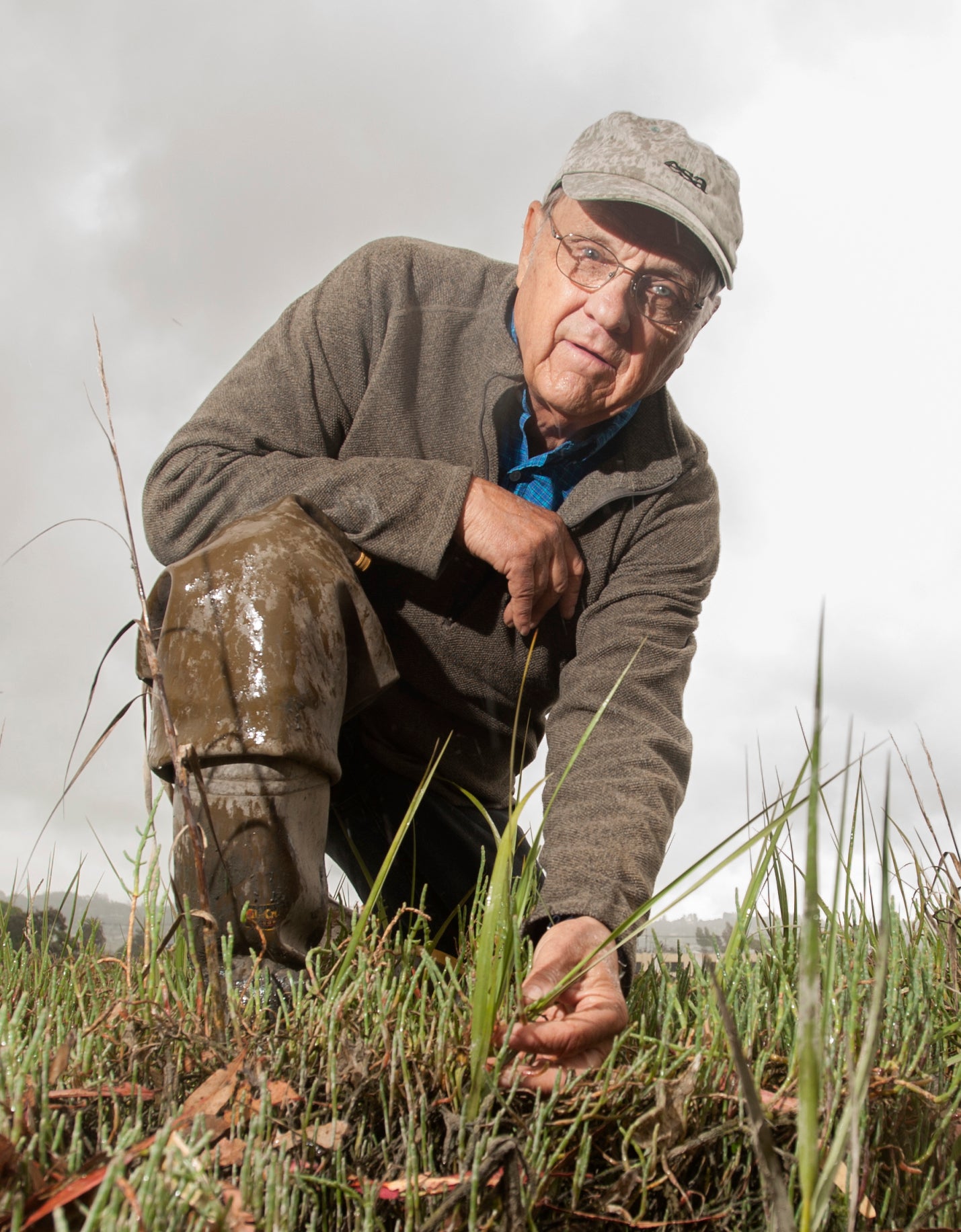
Strong is perhaps the world’s leading expert on Spartina, which is invading bays and estuaries of the West Coast of the United States and elsewhere around the world. Research by Strong and his colleagues revealed that the invasive Spartina — which creates permanent ecological changes when it crowds out native plants and helps dry up estuaries and wetlands — hybridizes with a native plant to create a “super invader.” It provided the scientific basis for successful management of Spartina, now being eliminated from San Francisco Bay.
Much of Strong’s work has focused on pests and parasites that attack plants. He has developed new ways to test theories in ecology, advancing our understanding of how plants and insects interact. In honor of his research on herbivorous insects, a species of fossil beetle (Cephaloleia strongi) was named for him in July 2000.
Other Academic Senate Awards
Distinguished Scholarly Public Service Award — This award goes to Lynn Kimsey, professor of entomology and director of the Bohart Museum of Entomology. Kimsey's expertise spans a number of specialties including insect biodiversity, systematics and biogeography of parasitic wasps, urban entomology and arthropod-related industrial hygiene. Her colleagues refer to her fondly as “The Wasp Woman” for her expertise on aculeate wasps.
“Dr. Kimsey has made outstanding contributions to public service and education through the numerous programs she has envisioned and directed through the Bohart Museum of Entomology,” said Steve Nadler, professor and chair of the Department of Entomology and Nematology. “She is very deserving of this prestigious award.”
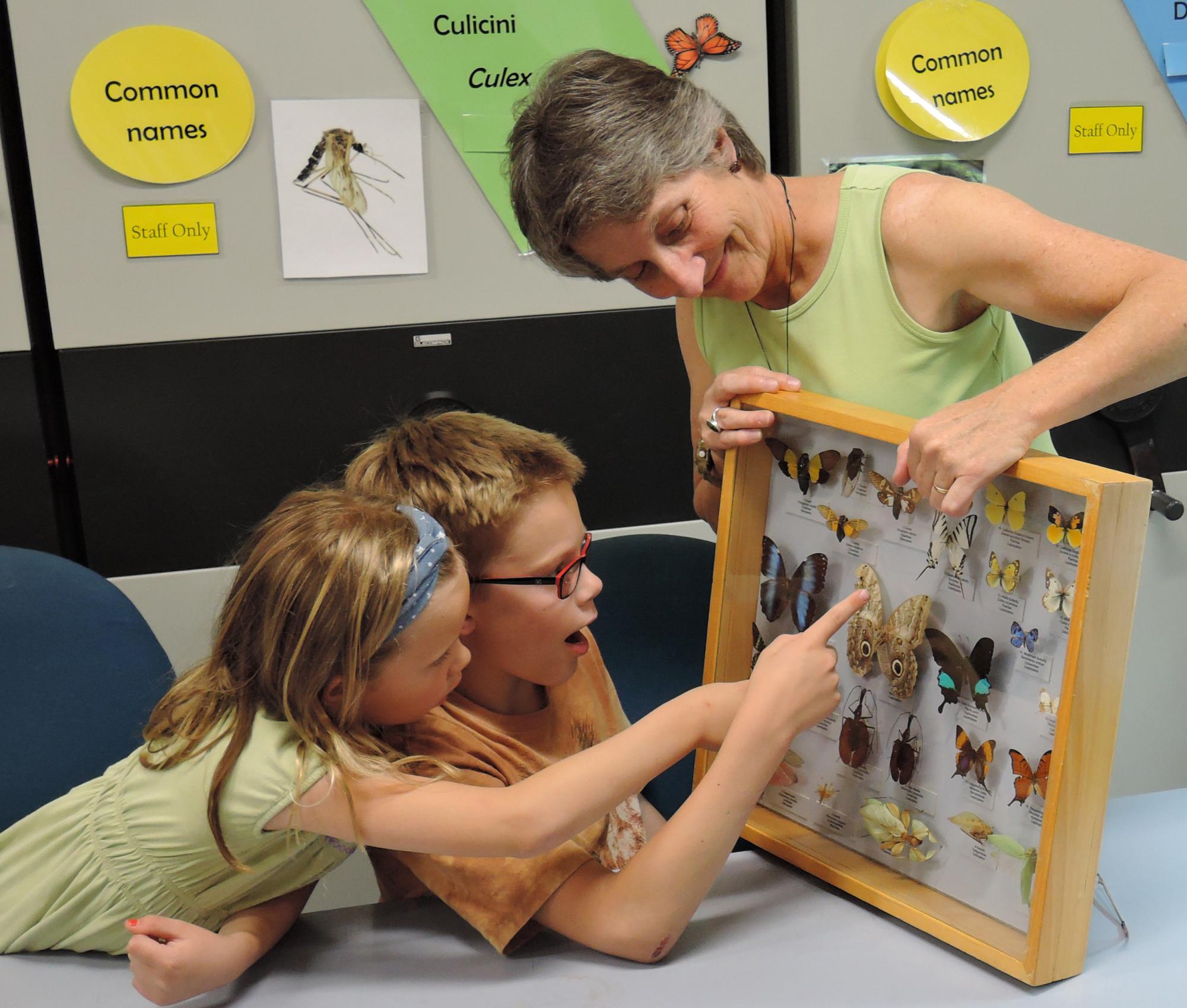
Kimsey developed the Bohart museum from a small campus collection into a thriving museum with 8 million insect specimens, available to schoolchildren, the general public and the global research community. Over the years, she has worked hard to foster an appreciation of insects by developing the museum’s offerings of open houses, workshops and lectures.
She broadly shares her knowledge of insects by consulting with international, national and state agencies. She also identifies thousands of insects every year for scientific collaborators, public agencies and the general public; and annually answers scores of questions about insects from the news media and public.
Distinguished Teaching Awards: Undergraduate
Eric Sanford, a professor of evolution and ecology with the Bodega Marine Laboratory (BML) and Center for Population Biology, is one of three winners of this award. When asked to comment on his teaching, Sanford’s colleagues respond with superlatives. According to one, he is “perhaps the best instructor and mentor BML has ever experienced over its many years of in-residence courses.”
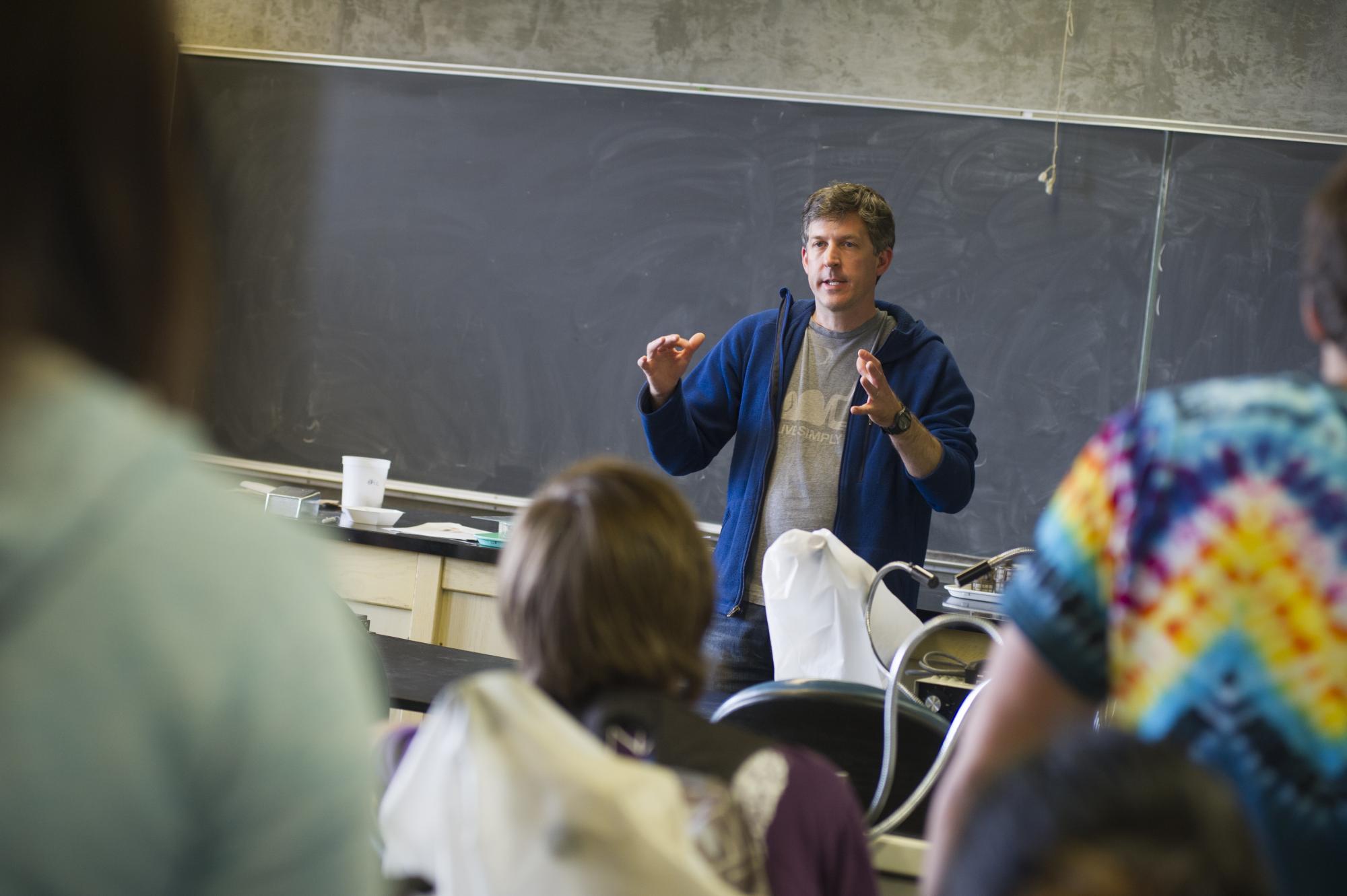
Sanford’s students obviously agree. He has received a perfect 5.0 instructor rating in 13 of the last 18 courses he has taught. In addition to his accomplishments in the classroom, Sanford has been heavily involved with BML’s Research Experiences for Undergraduates program and in the development of the marine lab’s curriculum.
Professor Alessa Johns has established herself as one of the best loved, most valued and most effective teachers currently working in the English department.
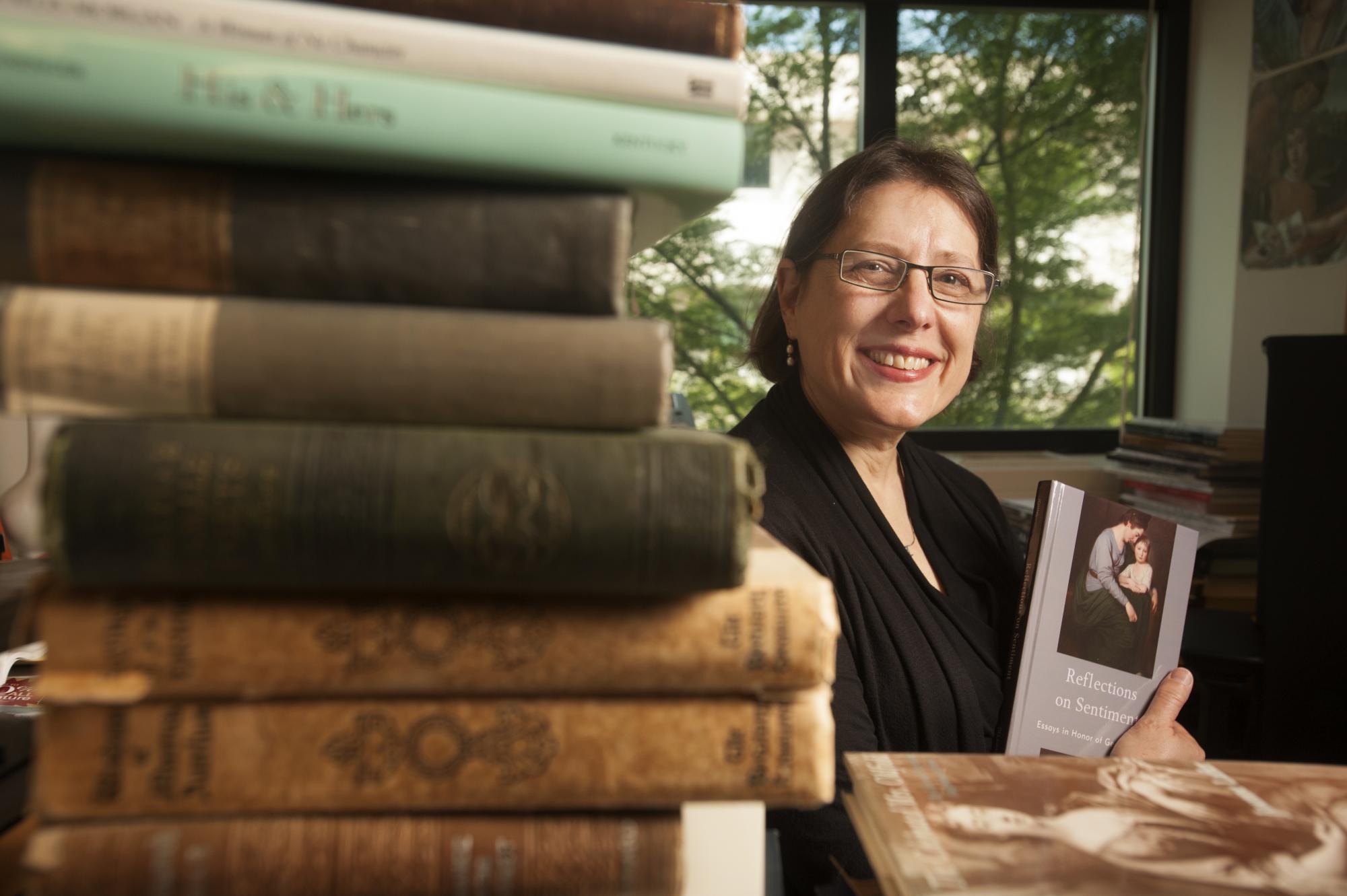
Her area of specialization is 18th-century British literature. Johns consistently connects with the students by making the language and history immediate and accessible. Throughout evaluations, students refer to Johns’ passion for the field, her warmth, her approachability, her facility in encouraging class discussion, and her unstinting efforts to encourage their development as writers and thinkers.
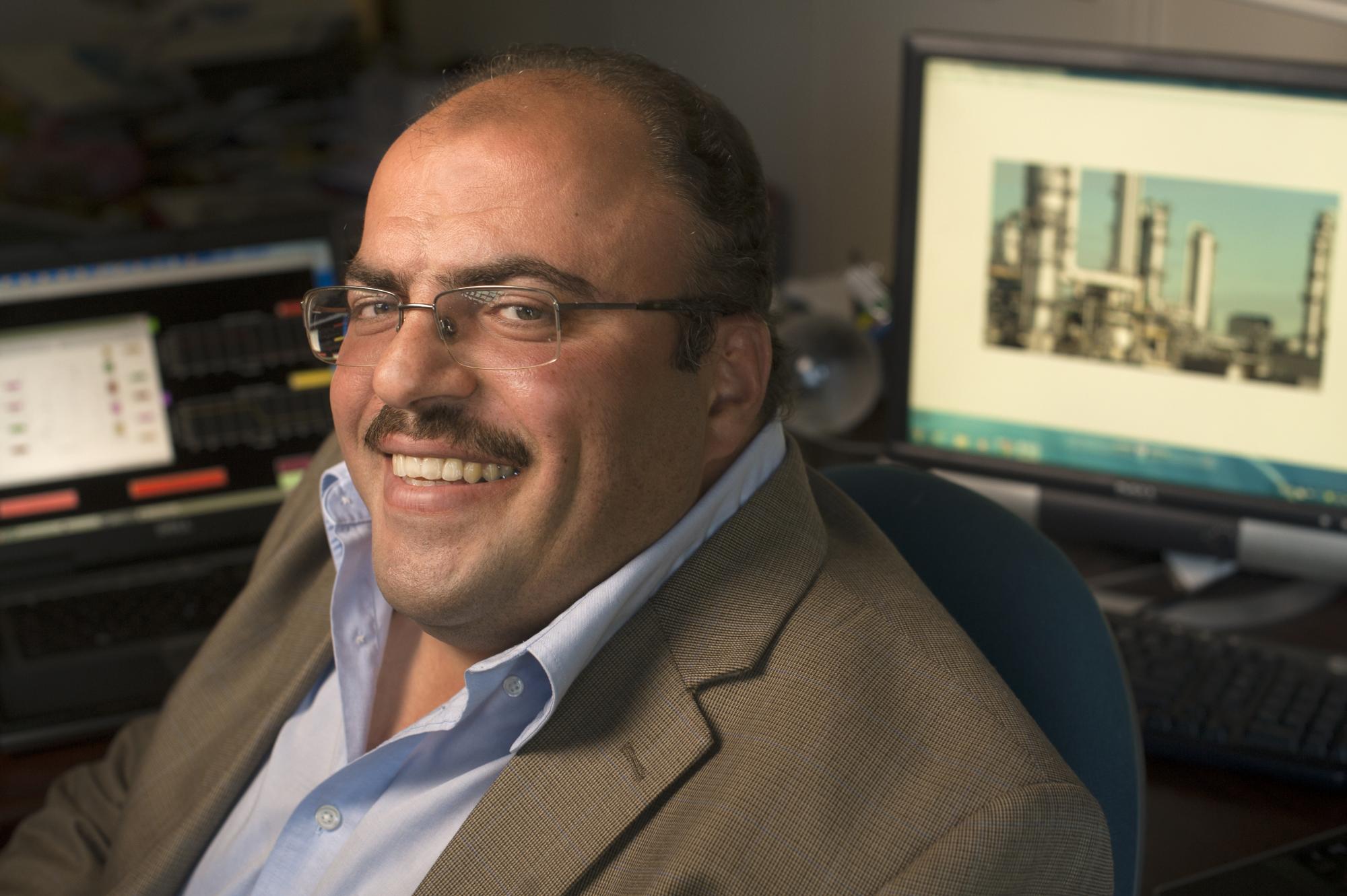
Nael El-Farra, a professor in the Department of Chemical Engineering and Materials Science, is well known for being one of its most enthusiastic, effective and dedicated faculty. Students know him as an expert in process dynamics and design who continuously strives to enhance student learning, improve curriculum and integrate advances in the field. One student summarizes his impact this way: “He truly understands the topic and honestly cares for the students.” As El-Farra says, “Learning should not be an onerous task, but it should be exciting and challenging.”
Distinguished Teaching Awards: Graduate and Professional
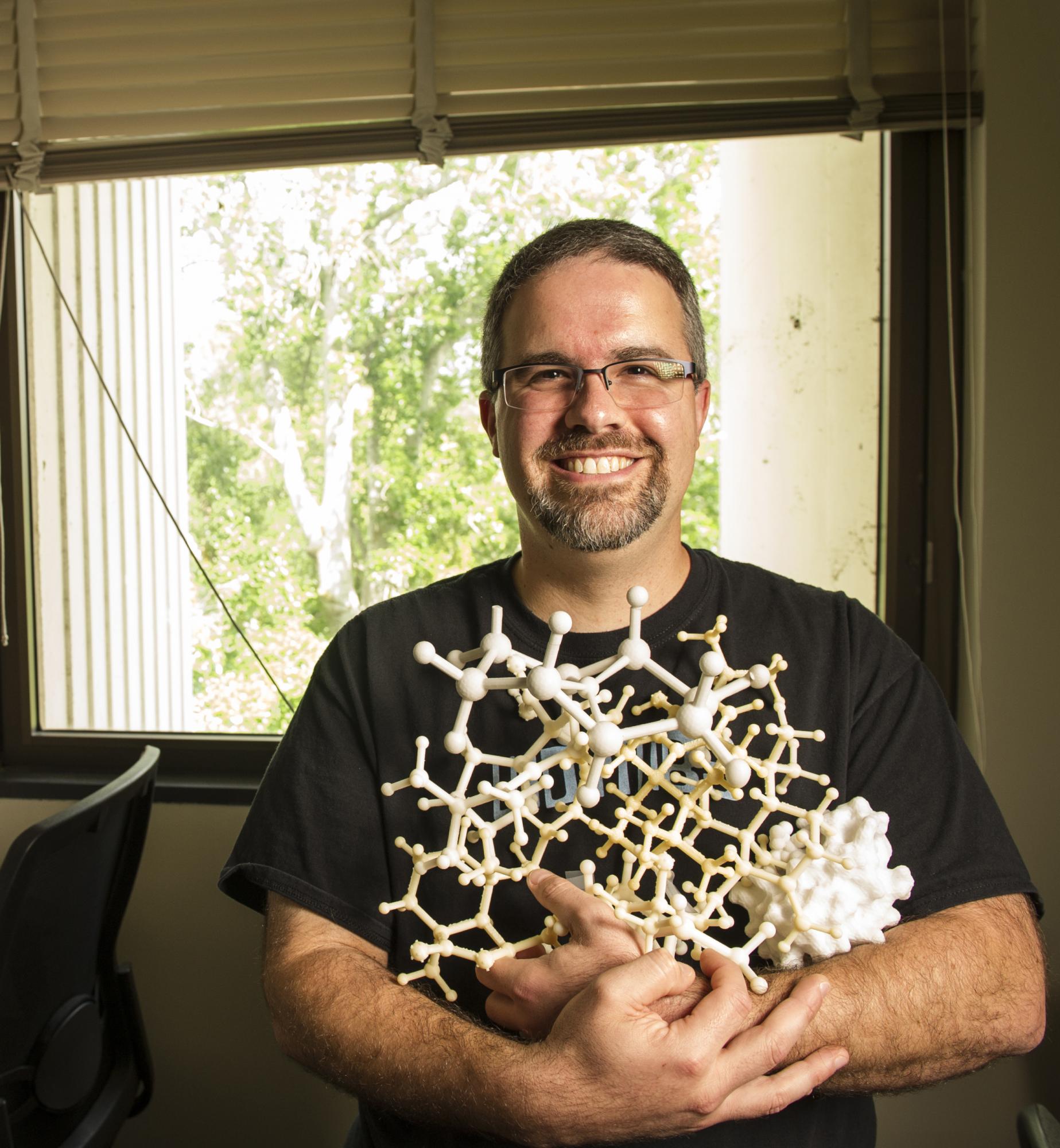
Dean Tantillo, professor of chemistry, has developed new tools to make chemistry accessible to the next generation of students, disabled or otherwise. One of his doctoral students is blind, and, in order to make visualization of molecules a reality for the visually impaired, Tantillo uses a 3-D printer to print molecular structures. The experience of having a blind student in the group helps other group members to see chemistry from a new perspective. They are required to describe their research without reference to visual clues, and this trains students to be unambiguous scientific thinkers and communicators. Another of Tantillo’s students was profoundly deaf, and here the challenge was that all communication had to be purely visual — again forcing unambiguity and clarity. Tantillo is a passionate teacher, and he treats all of his students as respectfully as he would a colleague.
Julie Dechant is associate professor of clinical equine surgery, emergency and critical care in the School of Veterinary Medicine’s Department of Surgical and Radiological Sciences. Her faculty colleagues, residents and students regard her as an exceptional instructor with a creative and effective teaching style. Adjectives used by vet students to describe her teaching include “dedicated,” “amazing,” “enthusiastic,” “well organized,” “approachable” and “empowering.”
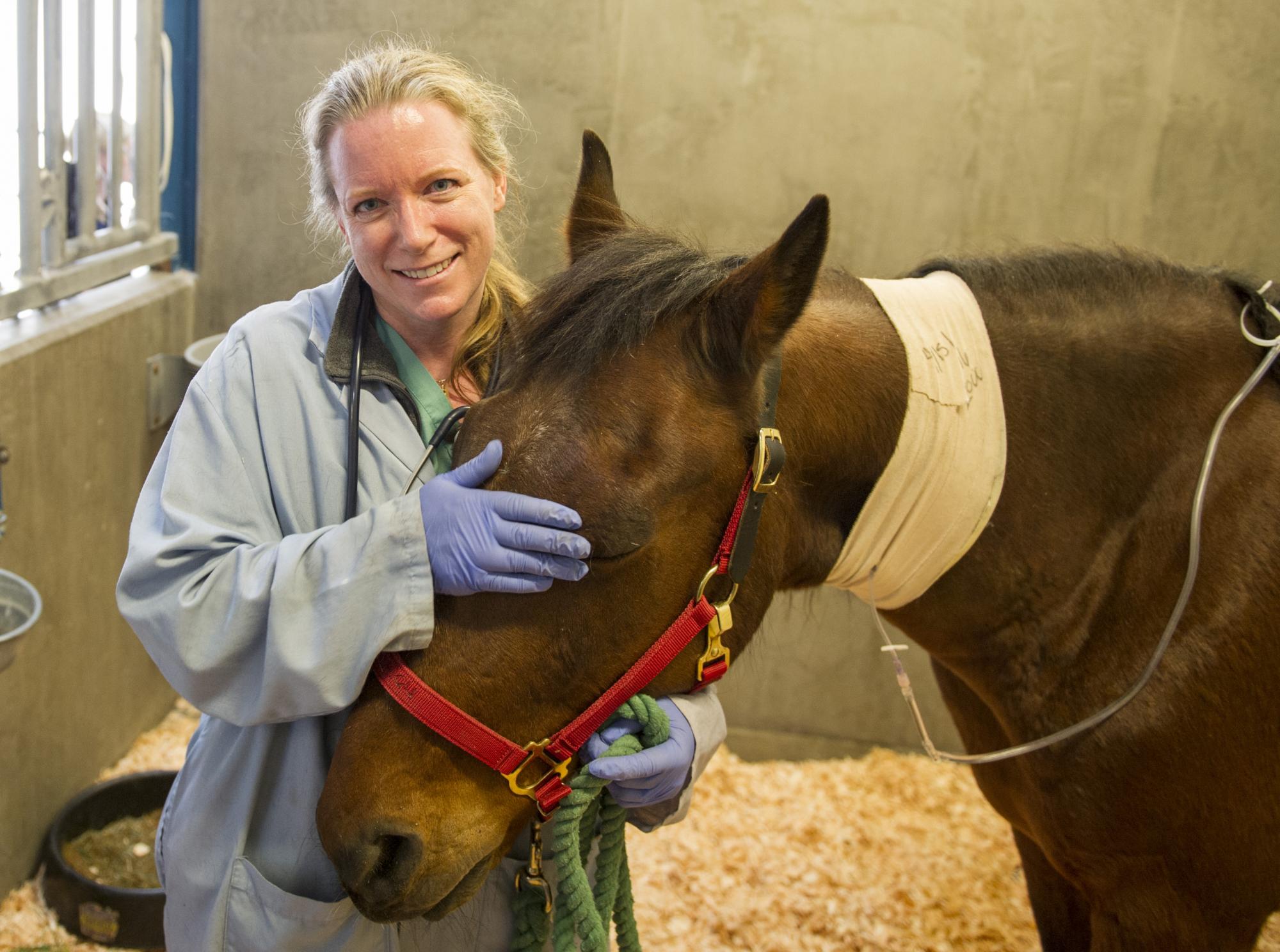
Residents appreciate her genuine contributions to their professional development and growth through her mentoring, humble demeanor, sense of humor and exceptional intellect. Her faculty peers value her leadership in redesigning curricular content and her special skills as both a didactic and clinical instructor.
Lavjay Butani, a professor in the Department of Pediatrics at the UC Davis Health System, exemplifies all of the qualities and remarkable accomplishments one would hope for in a clinical educator. He is an exceptional teacher who cares deeply about his students, he is a distinguished researcher in his field, and he has made significant contributions to medical education.

With the department since 1999, he has inspired students and won the admiration of his peers. Through his valuable work and dedication, he continues to make an important impact in his field and on the lives of his students, friends and colleagues.
Academic Federation Awards
The federation selects recipients of its annual awards from among its membership of about 1,500 academics, with titles that include adjunct professor and adjunct instructor, agronomist, academic administrator and academic coordinator, librarian and program coordinator, as well as Cooperative Extension specialist — and, in the case of this year’s recipients, lecturer and project scientist.
Excellence in Teaching — Sean Davis, a continuing lecturer in the Department of Computer Science, teaches three classes almost every quarter. Even more remarkable are the number of students in each of his classes and the number of different classes that he teaches. He primarily teaches lower-division classes, but he also teaches an upper-division class and the class that all computer science teaching assistants take to become familiar with their responsibilities.
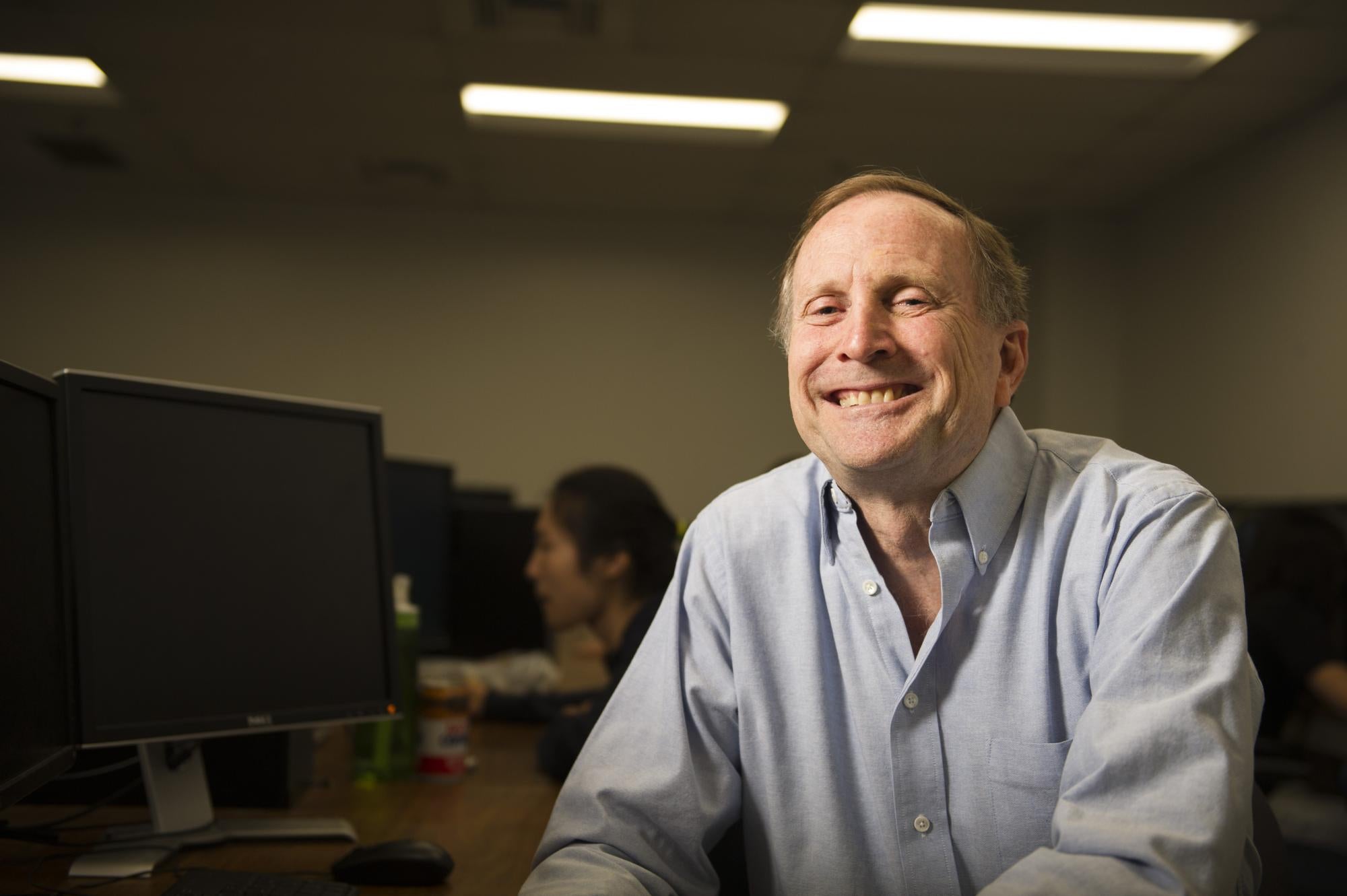
A colleague commented that Davis wants to give his students the skills that they will need to be successful and wants to give faculty the time they need to pursue their research. Students commented that Davis’ lectures are clear and well prepared, that his handouts are very detailed and accessible, that he has a unique ability to patiently answer questions in lectures with several hundred students, that his programming assignments and exams are tough but fair and very instructive, that he is always willingly attentive to student needs, and that he is accessible to students for advice on graduate school or searches for employment.
Excellence in Teaching — Wrye Sententia, a continuing lecturer, takes the initiative again and again to lead and excel in her roles as teacher, researcher, administrator and writer in the University Writing Program and in the UC Davis academic community. She is often the first to explore new research on teaching writing or student learning. She is also the first to share her experiences to open new spaces and opportunities for her colleagues and students. Her energetic and generous commitment to all students’ potential to learn and succeed is constant and inspiring. One of her students commented: “Her assigned coursework was so relevant for my goal of being a better writer that I was constantly excited to do homework.”
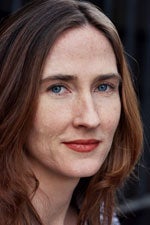
Sententia has undertaken substantial curriculum development and course design, pioneered new teaching technologies, given professional development workshops, and participated in public conversations about improving teaching and writing in the disciplines at UC Davis. She mentors former students as well as her present-day students. A colleague wrote: “She communicates competence and a teacher-student solidarity I’d sum up as, ‘We’re working together here.’”
Excellence in Research — The work of Nathan C. Rockwell, project scientist in the Department of Molecular and Cellular Biology, informs new avenues for increasing light-harvesting efficiency of food and energy crop species, and presages complete understanding of light signal transfer. He is the founding father and driving force of research on cyanobacteriochromes, or CBCRs, a family of phytochrome-related light sensors. Rockwell's studies have led to new insights into how CBCR sensors perceive different colors of light, how photoactivation of the bound pigment leads to activation of the surrounding protein scaffold to transmit information to associated signaling output domains and how these molecules can be engineered as light switches in living cells for biotechnological applications.
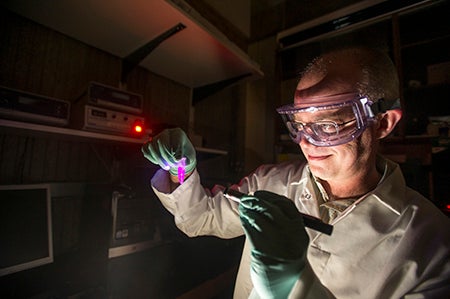
His recent discovery of novel far-red light sensors holds enormous potential in the fields of neurobiology and medicine by opening a window for deep light penetration into tissue. The pending patent application that is supported by the UC Davis Technology Transfer Office underscores the importance of the possibilities. Rockwell participates directly in the research of all grant participants and has co-authored 39 peer-reviewed publications since 2009.
Media Resources
Julia Ann Easley, News and Media Relations, 530-752-8248, jaeasley@ucdavis.edu
Julia Ann Easley, News and Media Relations, 530-752-8248, jaeasley@ucdavis.edu
